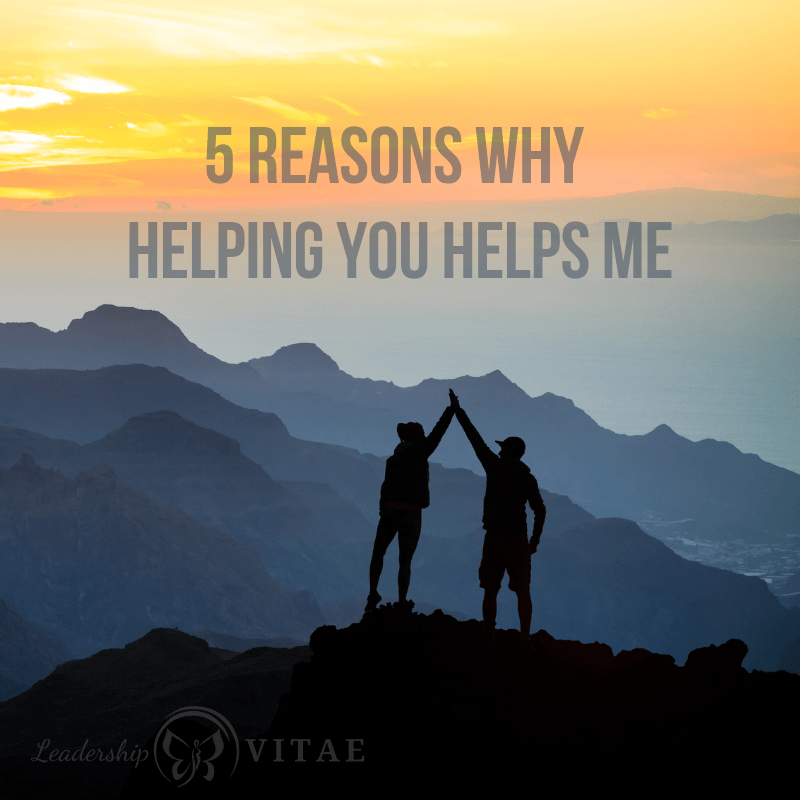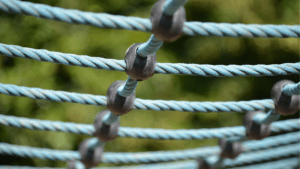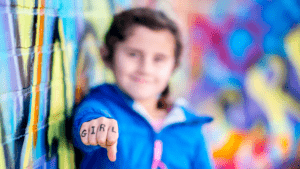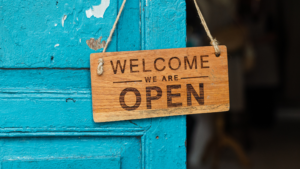
Recently, I shared an older post about helping each other through the chaos on LinkedIN. Someone in my community commented on how much our engagement has helped her ride the waves of change during COVID.
My reaction was immediate. Helping her helped me.
I participate periodically in office hours with my colleague and friend, Michael Santarcangelo at Security Catalyst. In one of our sessions, we talked about the work I’ve done as a coach and mentor, and as the executive sponsor for our technical women employee resource group.
Michael asked me “Who gets more from these engagements, them or you?” It’s me, hands down.
It may sound counter-intuitive, but it’s true. Helping others gives me so much. I don’t want to presume it’s more or less than what others are getting from the conversation, but there’s no question about the multiplying factor of giving.
The world is pulling us in many directions. We may not feel like we have much energy left to give more. Why should we help when we are already giving (or it seems like the world is taking) so much?
Because helping others helps us.
Perspective
When I’m having conversations with friends, colleagues, or clients, I’m often asked for my views on a particular challenge. Frequently, there is similarity to something I have experienced or am going through.
During these discussions, I can pull from my experience, research I’ve done, etc. However, hearing someone else’s challenges gives me new ideas I might not have considered previously. Often, it not only helps that person, but gives me a different perspective or idea on my own situation.
It’s easier to see a problem from the outside in than the inside out. When we see our challenges manifest with someone else, it removes us from the center. This gives us more objectivity, which we can then apply to ourselves.
Acceptance
Years ago, I struggled with feedback I received on an annual review. Eventually, I was able to see it as a gift. The gift of empathy for anyone else who received unexpected feedback. I was in a better position to help prevent it from happening on my teams, and help guide someone else through the experience.
It took me about 9 months to get there. During that time, I was angry and resentful. Now? I remember those feelings, but I’m not carrying them with me. Instead, I carry the awareness that the experience makes me a better coach and leader.
Each time I pull from that experience to help someone else, it comes from a place of acceptance. Acceptance of my struggle, and blessing for the insight and empathy it provided.
When we help others, it allows us to transform our challenges and pain from burdens into gifts. Ones that can be shared, understood, and valued. What might have been a dark period can turn into a light for others, and ourselves.
Belonging
Recently, a co-worker introduced me to someone new and we got to talking. We each tend to be the helpers/givers in relationships, and wanted to figure out how we could help the other. What we didn’t expect is how much we’d each get in return.
We are both single working mothers, struggling at times with home-based schooling, work demands, and household stuff. We are also on journeys of re-learning about ourselves and the world around us.
During our conversations, we frequently end up laughing or getting choked up. It’s moments where we realize we are not alone. That someone else is going through this journey too.
Sometimes we laugh in joy that someone else is with us. Other times, we are emotionally overwhelmed because it was a scary thing we thought we were experiencing in isolation. Throughout, it’s a sense of belonging and being seen.
Helping others may start as offering the hand we wish someone had extended us. We are rarely the only ones who have experienced something hard or painful or scary. When we share and realize we aren’t the only ones, it can help lighten our load.
Energy & Wellness
When we see someone else getting value in our advice or experience, it can be fuel to energize us.
I call it “the juice.” That good feeling that comes with helping others. But there’s science behind it too.
While engaging with others too much could be draining (calling all my fellow introverts here), relating to others can be a reward. Looking at NLI’s SCARF model, relatedness can either be a threat (when we feel disconnected from others) or a reward (when we find connection).
In the book “Burnout”, the authors share science that demonstrates emotional exhaustion is the primary driver for burnout in women. One of the ways to prevent burnout is through positive, meaningful social interaction.
What is more positive and meaningful than helping someone else?
Helping others can refill our cup and give us the energy for all those other demands life is throwing at us.
Humility
That this is last is an irony that isn’t lost on me. When I was gathering my thoughts and energy for this article, it’s the last one that popped into my head. And yet one of the most important.
None of us has all the answers. Not even a fraction of them, relative to all the possible things that could work in a given situation. No friend, colleague, coach, or “expert” does. What we do have is the experience of poor outcomes that puts in a position to help others navigate similar situations. Hopefully better than we did.
Humility – acknowledgement of being a perfectly flawed human – is a gift in itself. When I share my stories, such as through my writing or coaching conversations, I often realize I have to take my own advice. There are also times when listening to someone else recount their challenges and what they want to try, helps me add a new tool to my toolkit.
When we help others, we often open ourselves to a wider world of possibility. It can feed a growth mindset, if we are as open to receiving as we are to giving.
Be a giver and a taker
It’s been a number of years since I read the book, but I loved reading “Give and Take” by Adam Grant.
I like to see myself as a giver. As a helper. I’ve struggled, however, with perceiving myself as a taker when I open myself up to help from others.
The how’s and why’s of that mindset will wait for another day. However, what I have realized is helping others can help me…but only if I’m open to it.
I have to be willing to receive the gift of others’ help. Instead of hording the good feelings of giving, allowing someone else to give can fuel them as well. While whatever advice I think I’m offering may be a gift, allowing them to give in return could be an even greater one.
When someone I’m coaching or mentoring offers thanks for my help, I thank them in return. I’ll share something I got from the conversation. If an interaction inspires an article, I share it and let them know their contribution. Allow them to see that they weren’t just taking in our interaction…that they were givers too.
All of these benefits go both ways. When we let someone see the gifts we are receiving from an interaction – even when we are the ones “helping” – it can be a source of belonging, acceptance, and energy for them.
Back to the original question “who gets more?” It’s not me or those I help. Instead, it’s exponential, giving all of us more. More relatedness, energy, and belonging that we can then gift to others.
It’s the way we’ll change the world, one person at a time.









3 Responses
Enjoyed this post
Thank you Ed. I appreciate you reading the article and taking the time to comment.
Great, and I liked it and shared on my network.